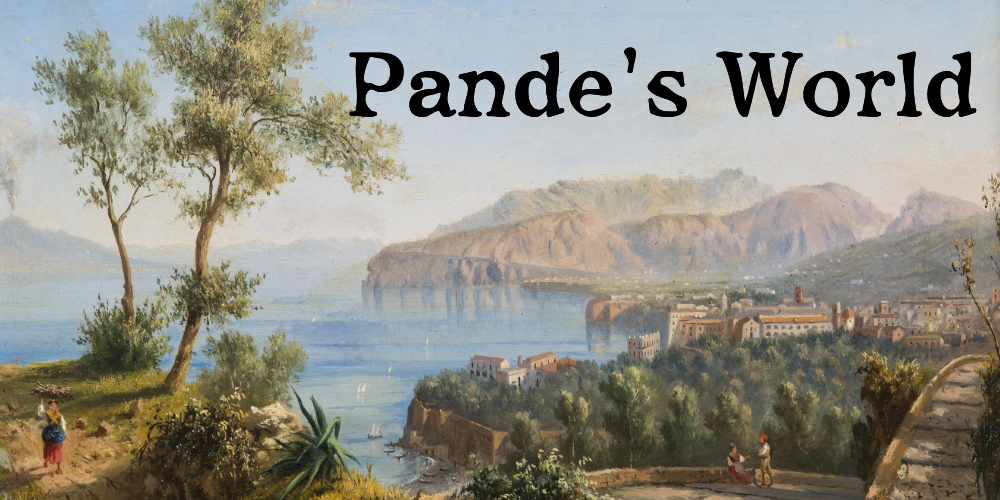Roadbuilding Clan
"Welcome to the Graciusi Clan my boy! You got your Thrones for me? Ah, well done, just hand 'em to Ferd over there and follow me so we can get you all set up. Now, I can see you're not from around here, but we don't ask questions here, and we don't judge. Stick with us a year and you get your pot back, plus a-payin', which is the whole point, aye? Tula here will see you get someplace to sleep and fed at the end o'the day. I expect to see you first light. We got some slabs need placing!"The Roadbuilding Clans of The Empire of Belyos are nomadic groups of like-minded people who build and repair the Imperial Highways, under license from whichever Elector Lord rules the area. Each clan marks out a territory and are fiercely protective of their patch, with conflicts between clans over lucrative borderline work offers relatively common. They travel the roads of the Empire in large caravans of perhaps a dozen or more wagons, and can contain around a hundred members, all skilled masons, builders and teamsters. Even the women of the clans get involved when there is heavy work to be done. Whilst they use the term 'clan', the clans are not linked by blood, although it is common for families to part of a clan and some clan members can claim lineage back to the early days of the Empire when they were first established. Instead anyone can buy their place into a clan with an initial investment, and if they manage to impress the rest of the clan in their first probationary year, they receive their down payment back and can start to receive some of the profits of the work.
Career
Qualifications
A willingness to work hard is the only qualification to join a Roadbuilding Clan and the Clans are well known for taking on anyone, no questions asked. After a few years in the Clan most are skilled masons and engineers, able to craft the stone blocks that make up the roads, and to build and repair the bridges, fords and other infrastructure items of the roads.
Career Progression
A newcomer to the clan is assigned as a general labourer, doing whatever the more skilled and experienced members of the clan direct them to. After a few years of this, it is expected that a member will have picked up some further skills and might be taken on by another member to learn the crafts more formally. The rate of progression is entirely dependent on the needs of the clan, and not all members will develop specialised skills; the clan still needs lifters and carriers, as well as those willing mind the oxen, cook the food, and gather resources.
Payment & Reimbursement
For the first year of membership to a clan, a member is expected to be able to subsist on their own, as the clan cannot risk investment in someone not willing to stay. This is a difficult time, but most clans will support someone if they appear to be serious and not let them starve or be left behind. After the first year, they are welcomed into the clan officially, and are entitled to a share of the clan's profits. The actual share received is highly variable, and is decided on by a meeting of the Clan council after payment is obtained for the work done. The council goes through each member of the clan, and decided how much they are entitled to, based on the work that they did. There is a minimum amount paid out, and the clan pools its food and other consumables, so that no member goes hungry or unclothed.
Other Benefits
Clans would claim that their way of life offers a lot of freedom, and despite the low social standing, they have a large amount of professional respect. A skilled clan member is entitled to retire at any point (although the clan will do its best to retain them) and can expect to earn a reasonable wage using their skills in other areas, but most would rather remain with the clan.
Perception
Social Status
Whilst the Clans are widely regarded by the nobility as an essential part of the Empire infrastructure (so long as they don't need to interact with them directly), their perception amongst commoners is far less favourable. A reputation for carefree living, harbouring known criminals, predilection for petty theft, and seduction of the youth have dogged the clans since their first creation, regardless of any actual behaviour to support it. Most villages and small towns will actively discourage Clan caravans from setting up nearby, as the larger clans are more than capable of outnumbering smaller settlements, particularly in the south, where most road building is taking place. Their disruption to the local flow of traffic (even though it is usually necessary), and the taking up of land and road space by their wagons and oxen are also causes for complaint. Accusations of Nexi worshipping are not unheard of, although are entirely unfounded, and clans are known to leave an area with the work unfinished due to hostile locals, informing the local nobility of their inability to do the job.
The Clans do get what they call 'harassment' from military units patrolling the highways, but this is mainly due to the Clans' reputation for accepting anyone, regardless of their history, and not asking about it. Whilst the Clan deny it, accusations of criminals hiding in their ranks is often thrown around, and patrolling units are usually under local pressure to check the members of the Clans for outstanding crimes and warrants. Almost in every instance, the Clan bands together and refuse to cooperate in identifying their members, leaving the local authorities frustrated.
History
In the old Empire, road building had been part of the Imperial responsibilities since Riesam the Builder in 75 IY decreed their construction. For almost a thousand years, the roads were built and maintained by the central Imperial authority, funded through taxation on the population and tolls for those who used it. When The Great Schism occurred, this central authority was lost in those parts of the Empire that seceded, and some of the secessionist Lords had little interest in maintaining the roads, being more focused on naval trade routes. For the rump Empire that remained, funding for the roads was drastically cut, and most of them started to degrade. By the time the Empire finally collapsed in 1218 IY, only the major trade routes were being actively maintained.
The years under the Sakamohr invasion saw a further deterioration of the network, and even after their expulsion in 1587 IY, the allied Lords could only agree to maintain the road to the pass at Enim as a joint function. However, despite this, some more far-sighted lords began working on rebuilding the roads in their areas, putting out a call for suitably qualified people. The gangs who started this work in Imbar and Chasroth formed into the first of the Clans, and the idea spread.
In the aftermath of the reunification, the Clans stepped up and convinced Til-Yaltur to codify their position. Imperial Law now states that an Elector Lord must maintain the roads in their province, or face punitive fines and potential sanction from both the Imperial Throne and other Elector States that place a greater value on the road network. Whilst work could be done by independent groups, the Clans made sure that they received the right of first refusal and their place in the Imperial system was secure.
Clan flags can be very complicated, and can indicate to other clans their status, geographical area claimed, and skills possessed.
Alternative Names
Clanners, Roadies, Nomads
Type
Engineering
Remove these ads. Join the Worldbuilders Guild



Comments